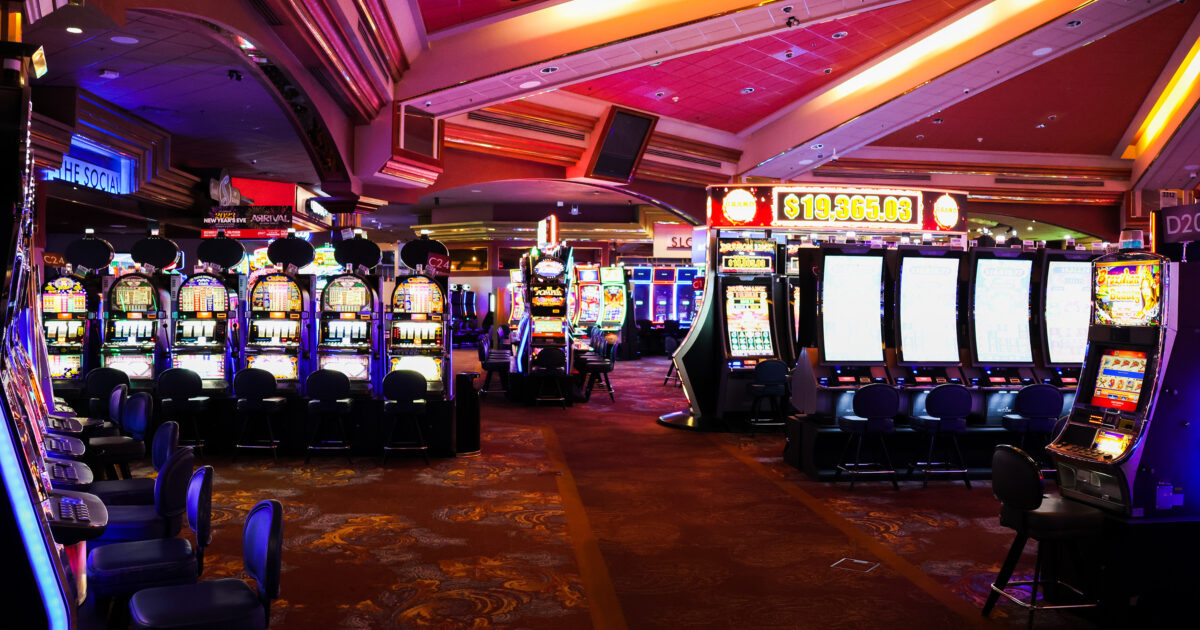
Casino entertainment have long been a significant aspect of human culture, providing not just entertainment but a fascinating reflection of our hopes, dreams, and fears. From the turning reels of a slot machine to the skill-based strategies of poker, these games represent a range of human sentiments and incidents. At their core, casino games are more than a chance to make profits; they are a reflection of life itself, where risk versus reward intertwine and fate can change in an eye blink.
As players assemble around tables or sit in front of glowing machines, they take part in a ceremony that transcends mere gambling. These games mirror our natural desires for relationships, excitement, and the pursuit of luck. They also disclose deeper truths about human psychology, such as our relationship with luck and the thrill of risk. In exploring casino games, we uncover not only the mechanics of play but also the complex weave of the human experience, showcasing our intertwining narratives of hope and reality.
The Psychology of Gambling
Wagering is deeply rooted in the psyche of individuals, appealing to various feelings and wants. The excitement of taking risks is a fundamental aspect that draws players in, be it it’s excitement of spinning a roulette or the anticipation of drawing a winning card in a poker game. This adrenaline is often compared to other forms of thrill, as the uncertainty of outcomes elicits a distinct psychological response. Gamblers often become captivated by the possibility of striking it rich, leading to an irresistible draw toward casino games.
Another, a crucial component of the psychology behind gambling is the concept of optimism and ambition. Participants often nourish dreams of financial freedom and the luxurious lifestyle that can accompany winning. This optimism fuels their ongoing participation in casino games, as it provides a sense of meaning and the conviction that a life-changing win could be just one bet away. The story of overcoming odds and achieving success resonates with many, strengthening their dedication to play and engage with these games.
Finally, social aspects play a crucial role in gambling psychology. Gambling venues are designed to promote social interaction, where players gather to share the journey of wins and losses. This shared aspect not only amplifies enjoyment but also affects behavior, as individuals often imitate the actions of others around them. The social validation found in shared excitement can magnify the emotional experience, making casino games a mirror of not just personal desires but also shared involvement within the gaming community.
## The Dual Nature of Risk and Reward
Gambling activities embody the fragile balance between risk and reward that resonates deeply with human psychology. The excitement of placing a wager is often accompanied by a jolt of energy, as gamblers are confronted with the possibility of winning big, yet fully aware of the risk to lose. This dual experience reflects a core aspect of life: the decisions we face often come with built-in risks, and the pursuit of reward can push us to make risky moves we might not normally consider. In this way, casino games reflect real-world decisions, enticing players to risk not just their funds, but also their hopes.
The allure of jackpot prizes and winnings fuels a sense of optimism, encouraging players to imagine a better future that could arise from a fortunate turn of the wheel or flip of a card. This hope can motivate individuals to engage in greater risks, pushing them to take greater risks in search of financial gain. However, just as in life, the consequences of these decisions can lead to both victory and failure. The narratives of both jackpot winners and those who have lost everything at the casino demonstrate the unpredictable nature of chance and its consequential repercussions on our lives.
Ultimately, the experience of engaging with gambling activities serves as a vivid illustration of the nature of humanity. Every game played is imbued with the tension of ambiguity, as gamblers weigh the gains against the risks. atk777 This dynamic not only highlights the excitement that comes with betting but also unveils the vulnerabilities that come with the longing for more. As we explore the challenges of choice and consequence in both the gambling world and in life, we find that the quest for gain shapes our identities and experiences in significant manners.
Society and Loneliness in Casino Environment
Gambling environment is a special mix of communal engagement and personal pursuit, reflecting the tensions of human experience. Players often gather around games, experiencing in the excitement of the game, celebrating wins, and commiserating over losses. This communal aspect is vital, as it creates a sense of belonging and bonding among varied groups of people. Regular visitors to gaming establishments may build friendships and establish routines, turning the casino into a alternative home where they feel linked to a greater community of players.
However, the appeal of gambling activities can also result to loneliness. As individuals become immersed in the thrill of playing, they may withdraw from personal relationships or neglect to interact with the environment outside the casino. For some, the search of a jackpot can overshadow real connections, leading to isolation. The situation of being surrounded people yet feeling solitary is not uncommon, as the attention shifts from collective fun to the individual concerns of each individual’s path.
This interplay of community and isolation creates a rich tapestry that defines casino culture. It showcases the complexity of human interactions, where happiness and despair exist together. Gambling venues serve as both a refuge for social interaction and a platform for individual struggles, demonstrating how deeply connected our desire for connection and the personal quest for fortune can be. In navigating this environment, players confront their own narratives—seeking both the rush of the game and the companionship of fellow players, eventually mirroring the wider spectrum of human experience.
